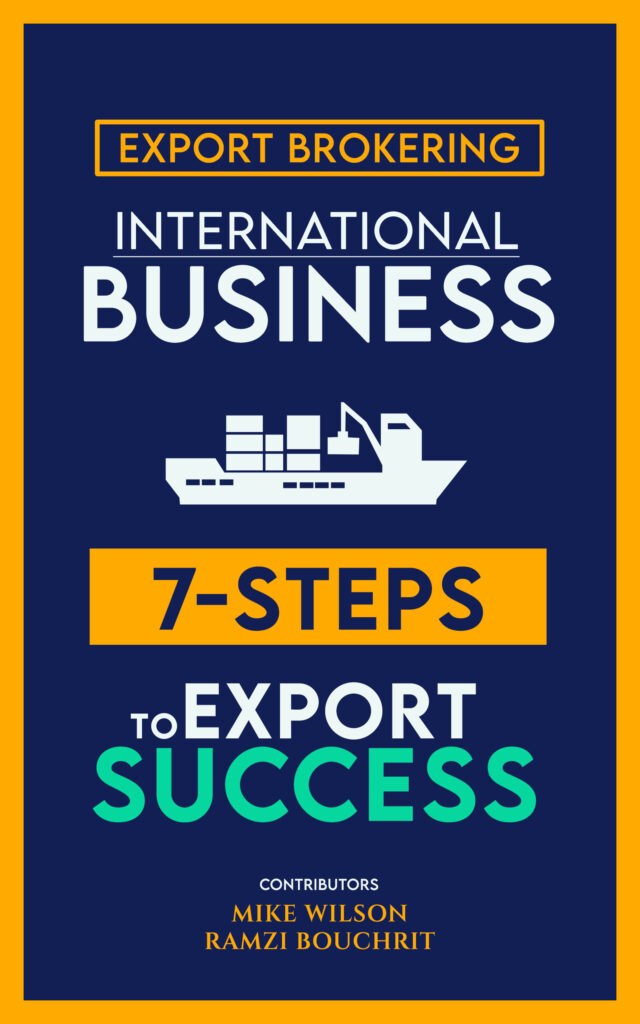As businesses engage in international trade, it becomes essential to explore alternative financing options beyond traditional methods. In this article, we will delve into the world of alternative financing for international trade, including trade finance, export credit, factoring, and crowdfunding. By expanding your financial toolkit, you can better support your global trade activities and unlock new opportunities.
In this step of “The Export Series” we will show you how to become a successful Import Export (International Trade) broker.

Mr. Ramzi Bouchrit (RB JV Group) has provided us with helpful information based on the different transactions he made with his business partners in the field of the International Trade aka import export. “The Export Series”.
H1: Understanding Alternative Financing options for International Trade
Alternative financing refers to non-traditional methods of obtaining funds to facilitate international trade transactions. These options provide businesses with greater flexibility, faster access to capital, and tailored financial solutions that align with the unique requirements of global trade.
H2: Trade Finance: Supporting Global Trade
Trade finance encompasses a range of financial instruments and products designed to support global trade activities. It provides businesses with the necessary liquidity and risk mitigation tools to ensure smooth trade transactions. Some key aspects of trade finance include:
H3: Types of Trade Finance Instruments
Trade finance instruments include letters of credit, documentary collections, trade loans, and bank guarantees. These tools help mitigate payment risks, provide working capital, and facilitate cross-border trade transactions.
H3: Benefits of Trade Finance
Trade finance offers several benefits, such as improved cash flow, reduced transactional risks, and enhanced credibility in international markets. It enables businesses to bridge the gap between the delivery of goods and receipt of payment, facilitating trade without significant financial constraints.
H2: Export Credit: Financing International Exports
Export credit is a specialized financing option that supports businesses involved in international exports. It provides financing solutions tailored to the unique needs of exporters, enabling them to expand their global reach and compete effectively in foreign markets.
H3: Exploring Export Credit Options
Export credit options include export credit insurance and export credit agencies. Export credit insurance protects exporters against non-payment risks, while export credit agencies provide financial support, guarantees, and insurance to facilitate exports.
H3: Advantages of Export Credit
Export credit offers advantages such as increased access to working capital, reduced credit risks, and enhanced competitiveness in international markets. It empowers exporters to offer more flexible payment terms to overseas buyers, opening up new business opportunities.
H2: Factoring: Optimizing Cash Flow in International Trade
Factoring is a financing technique that allows businesses to improve their cash flow by selling their accounts receivable to a third-party financial institution, known as a factor.
**H3: How Factoring
Works**
In factoring, the factor purchases the invoices at a discounted rate and takes over the responsibility of collecting payments from customers. This immediate cash injection helps businesses meet their working capital needs and overcome cash flow gaps.
H3: Benefits of Factoring in Trade
Factoring offers benefits such as improved cash flow, reduced credit risk, and outsourcing of credit management. It allows businesses to focus on core operations while the factor takes care of credit control and collections.
H2: Crowdfunding: Innovative Financing for Global Trade
Crowdfunding has emerged as a popular alternative financing method, leveraging the collective support of individuals or organizations to fund trade-related projects and ventures.
H3: Leveraging Crowdfunding for Trade Support
In the context of international trade, crowdfunding can be used to raise capital for product development, market expansion, or trade-related initiatives. It enables businesses to access a global pool of investors and supporters who believe in their vision.
H3: Advantages of Crowdfunding in International Trade
Crowdfunding offers advantages such as access to diverse funding sources, validation of business ideas, and increased market visibility. It provides an opportunity for businesses to showcase their trade projects and attract funding from interested individuals or organizations.
Conclusion
Exploring alternative financing options for international trade opens up new possibilities for businesses seeking financial support in the global marketplace. Trade finance, export credit, factoring, and crowdfunding are valuable tools that can enhance liquidity, mitigate risks, and propel business growth. By embracing these alternative financing methods, businesses can maximize their potential and navigate the complexities of international trade with confidence.
FAQs
Q1: How does trade finance differ from traditional financing?
A1: Trade finance focuses specifically on supporting international trade transactions, providing liquidity and risk mitigation tools tailored to the unique needs of global trade. Traditional financing methods may not offer the same level of flexibility and specialized features.
Q2: Can export credit help small and medium-sized enterprises (SMEs) expand internationally?
A2: Yes, export credit can be particularly beneficial for SMEs looking to expand their international footprint. It provides financing solutions and risk mitigation tools that level the playing field and enable SMEs to compete effectively in foreign markets.
Q3: What types of businesses can benefit from factoring in international trade?
A3: Factoring can benefit businesses across various industries involved in international trade, including manufacturers, wholesalers, and distributors. It is especially useful for businesses facing cash flow challenges due to extended payment terms or delayed customer payments.
Q4: Is crowdfunding a viable option for trade projects with high capital requirements?
A4: Yes, crowdfunding can be a viable option for trade projects with high capital requirements. By presenting a compelling vision and value proposition, businesses can attract a global community of investors and supporters who are willing to contribute to their trade ventures.
Q5: Are there any risks associated with crowdfunding for international trade?
A5: While crowdfunding offers numerous benefits, there are risks to consider. These include the need to deliver on promised rewards or returns, managing investor expectations, and ensuring compliance with crowdfunding regulations in different jurisdictions. Conducting thorough research and planning is crucial to mitigate these risks and maximize the benefits of crowdfunding.
 How To Info How to info
How To Info How to info